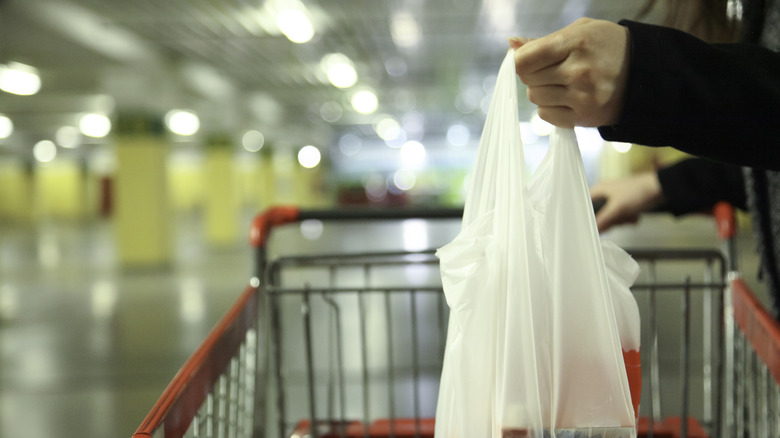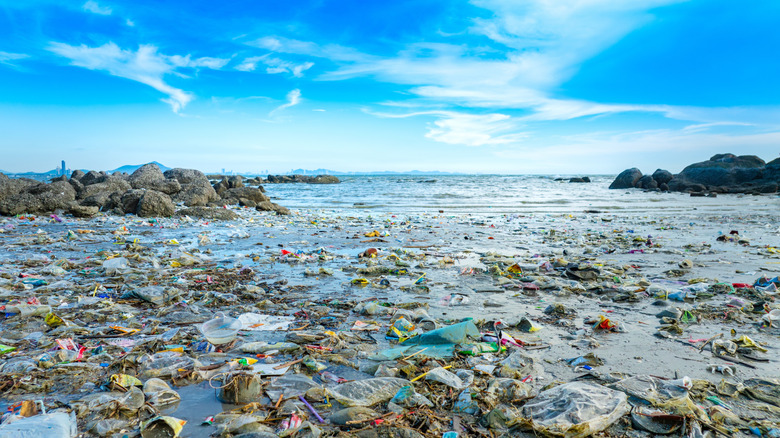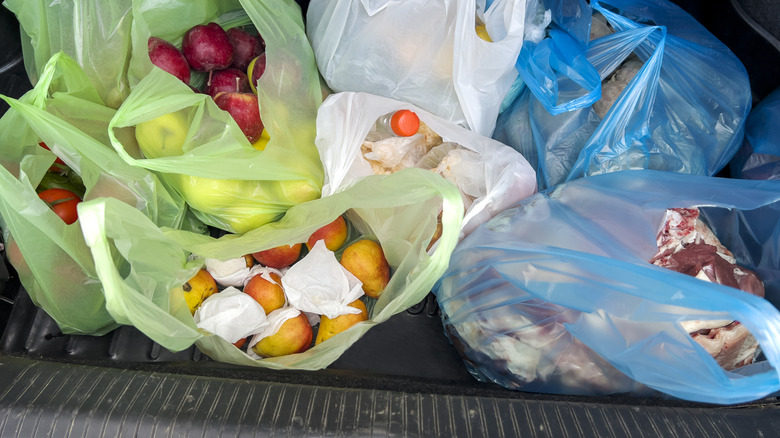How Much Do Plastic Bags Really Cost At The Grocery Store?
Disposable plastic bags used to be among the many things that used to be free for customers but now cost money. Twelve states charge at least 5 cents per bag already. But now, in many parts of the nation, stores are charging customers for single-use plastic and paper bags. And in some places, single-use plastic bags not made with recyclable materials are outright illegal. According to Greenprint, a company that produces bio-degradable products, 12 states have moved to outright ban plastic bags: California, Colorado, Connecticut, Delaware, Hawaii, Maine, New Jersey, New York, Oregon, Rhode Island, Vermont and Washington. There are also several cities and counties that have launched their own disposable plastic bag bans and regulations such as Boston, Massachusetts; Chicago, Illinois; Montgomery County, Maryland; and Washington, D.C. In the case of Washington, D.C.
The largest of those states, California, still allows establishments to hand out plastic bags but only until January 2026 and at a cost of ten cents per bag for customers. However, major retailers CVS, Kroger and Target launched an initiative to encourage customers in more than 1,000 locations to stop using plastic bags even sooner, the U.S. Sun reported. And in the case of the District of Columbia, a nickel is charged for each disposable bag.
Plastic is hazardous to the environment and your health
Since its invention in 1907, plastic has been used to make all sorts of things, including McDonald's Happy Meal toys that might be worth a bunch of money and some vintage Swatch watches. Unfortunately, resists decomposition for between 100 to 1,000-plus years, according to a July 2022 research paper, posted on ScienceDirect, by researchers from University of Johannesburg, De Montfort University, and the Directorate of Pan African University Life and Earth Sciences Institute. Cancer causing microplastics have been found in human livers, kidneys, lungs, fecal mater, and placentas, per a United Nations report. They can also cause reproductive, immunity and brain disorders, per the Environmental Protection Agency.
As for marine animals, and the humans who eat them, they must deal with millions of tons of plastic (especially shopping bags) that make up 80% of water pollution, which is being transformed into microplastics by ultra-violet rays, wind and other factors, per an International Union for Conservation of Nature brief. Plastics have even become part of ocean sediment, IUCN added.
But disposable plastic bag bans have had an impact. According to a 2024 report from the Environment America Research & Policy Center, plastic bag bans enacted so far in five states and several large cities have slashed single-use plastic bag consumption by six billion each year, an amount that could circle Earth 42 times.
Plastic bag backlash and skepticism
But not everyone is sold on the plastic bag ban. Arizona, Florida, Idaho, Iowa, Indiana, Michigan, Minnesota, Missouri, Mississippi and Wisconsin passed legislation aimed at preventing bans on plastic bags, per a December 2024 report from environmental group Food Print. The American Legislative Exchange Council (ALEC) has spearheaded preemptive bans across the U.S., arguing that plastic bags are good for preventing the spread of disease and cross food contamination, Americans are not responsible for 99% of the plastic pollution in the ocean, and less than 1% of pollution in the U.S. consists of disposable plastic bags. ALEC also believes is being used by governments hostile to business and hungry for tax revenue.
Indeed, states have not just banned plastic bags. Washington, Vermont, Oregon, Colorado and California have fees between five and 10 cents on each single-use paper bag as well as various cities and counties. Hawaii requires retailers to charge 15 cents a bag, including point-of-sale reusable bags. College Park, Maryland's webpage that officials require retailers to charge at least 10 cents per single-use paper bag to encourage the use of reusable bags. Each state and city have various exceptions to this rule.
Retailers have also imposed their own charges on paper bags for economic reasons. Each bag cost stores at least a penny each, or sometimes as high as 10 cents, Wayne Pesce, president of the Connecticut Food Association, told Connecticut Insider.


